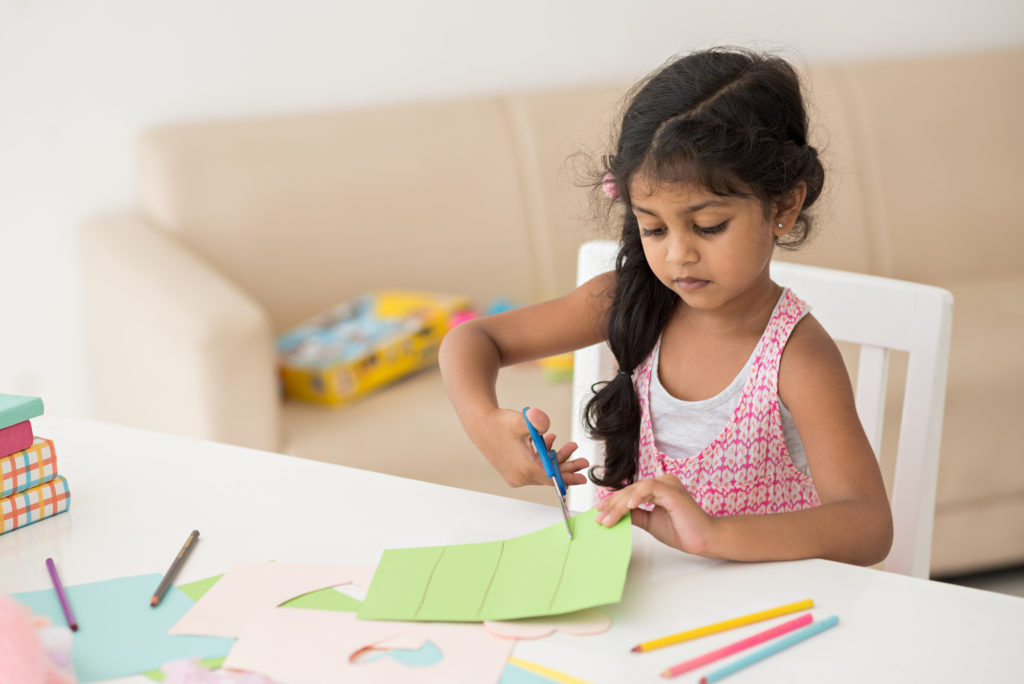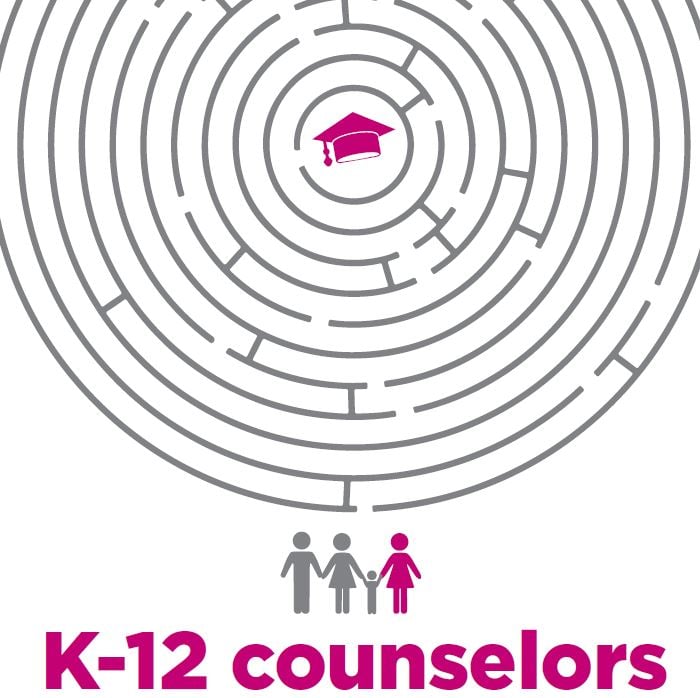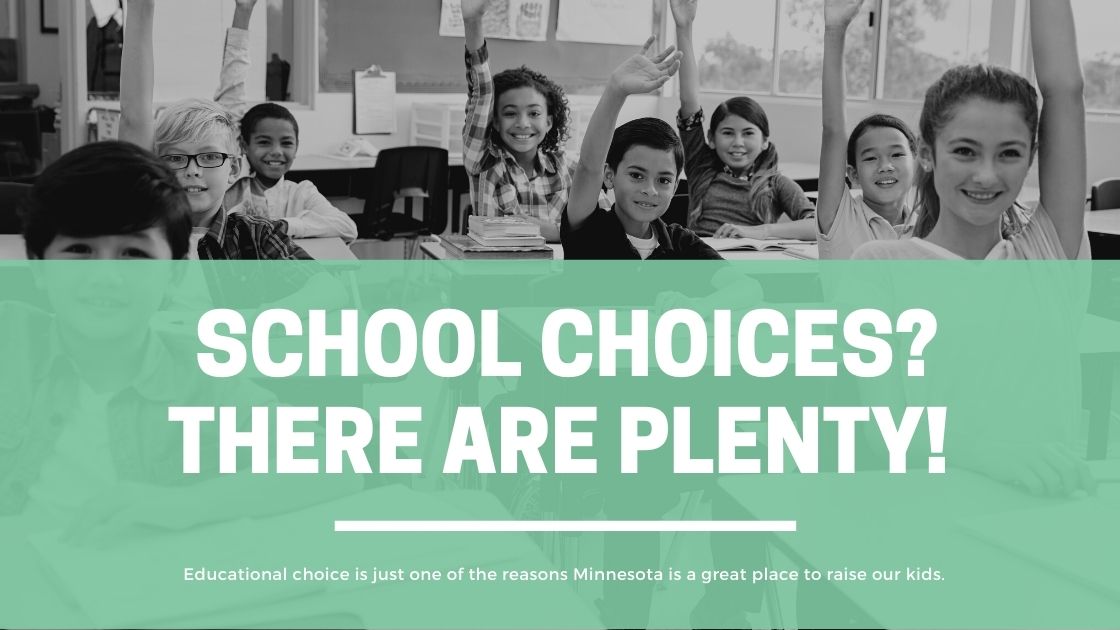Stressed about your kid’s first year of school? Check out these tips from teachers who know all about the big, wide world of kindergarten!
The transition to kindergarten is a big deal — whether you’re preparing your first child, the last in your brood or your cherished only. The biggest question on your mind is likely, “Is she ready?”
Especially now, when it seems like kindergarten readiness is about more than being able to sit for story time and play nicely with other kids (although that’s definitely important). In addition to social skills, kids must learn school procedures and routines, how to interact with diverse peers and tackle academics.
Yes, you read that right: Academics. Increased academic expectations are now a part of kindergarten.
With all of these elements to consider, we picked the brains of three expert educators from Bloomington Public Schools to compile the best insider tips for preparing your kiddo for kinder, including Erin Hanson, an 18-year veteran of kindergarten teaching; Emily Ostern, an experienced kindergarten teacher turned district literacy coach; and Jeanna Miller, the district’s director of early earning services.
When it comes to defining kindergarten readiness, the Minnesota Department of Education requirements are sparse: A child must be 5 years old by Sept. 1 and immunized. However, the state does provide standards for specific milestones children should reach throughout early childhood, which are called Early Childhood Indicators of Progress. Miller and her team work to add specifics to the state’s definitions. She highlights the importance of preliteracy skills as well as social-emotional skills such as independence, self-help and problem-solving.
“Children who understand how to learn are more ready for school than those who know rote knowledge, such as recognizing letters,” she said. “Both are optimal.”
Foster a love of reading
Preliteracy skills include oral language development and motivation to read. These skills can be cultivated by talking to your kids as much as possible, beyond directives such as, “Clean up your toys. Put on your shoes.”
Ostern recommends taking your child to places like the post office, grocery store or car wash, and using the time together to have a conversation. Ask open-ended questions, notice things around you, say silly rhymes (like the Name Game) and play games like I Spy or 20 Questions. As much as possible, use regular vocabulary with your kids; try not to water down your language with unique or cutesy phrases.
During a child’s early literacy years, motivation to read is largely based on positive reading experiences. Cuddle up with your kiddo and a good book you both enjoy. Sharing a great story together — as well as the individual attention and closeness reading provides — helps build positive feelings and attitudes about reading.
Ostern suggests talking about the book and asking questions, such as “What do you think might happen next?” or “Why do you think the main character did that? What do you think she should have done?”
Visit the local library to check out books and also purchase books for your child, if possible. Spending time and money on reading conveys that it’s worthwhile and valuable.
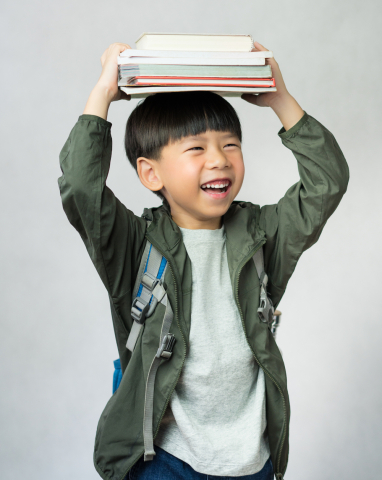
Build some skills
Beyond developing some preliteracy skills, there are things parents and kids can work on before kindergarten. These are the top items, according to our experts:
- Building oral language skills/talking
- Exposure to rhyming (Dr. Seuss-type books, songs)
- Recognizing and writing her/his name in upper and lowercase letters
- Some experience with letters (knowing at least half of the letter names), letter sounds and numbers
- Counting
- Ability to cut using scissors
- Ability to hold a pencil
- Fine motor skills: Ostern recommends Play-Doh, slime, hole punchers, lacing games and working on the floor — tummies down and elbows up — to strengthen fine-motor muscles.
- Encourage independence
- Independence is one of the most important traits you can help your child develop prior to starting school.
“The shift from being one of one/two/three (however many children are at home) to one of 24 children, all vying for help and attention, can be significant,” Hanson said. “Encouraging them to do as much for themselves as possible is important for building their sense of pride and self-reliance.”
When your child asks you to do something for her, figure out if it’s a request she could take care of on her own. If you’re not sure, encourage her to try herself before asking for help (as long as it’s safe) and to think about how she can solve a potential problem.
Also work with your kiddo to make sure he can put on and take off his own shoes, jacket, sweatshirt and winter gear. Practice zipping, packing and unpacking a backpack and even opening and closing food packaging. Make sure your child is proficient with bathroom wiping and hygiene. (Bonus: Successful handwashing can reduce your exposure to all the nasty bugs that sweep through the school.)
Develop social skills
In addition to building independence, build your child’s social-emotional skills. Peer interaction encompasses a large portion of these skills, such as taking turns, sharing and waiting. Being able to sit and focus for a short period of time (5 to 10 minutes) is helpful as well as the ability to follow single-step instructions.
Playing card or board games with your child can help immensely with building social-emotional skills as well as teaching and modeling good sportsmanship. When you play games together, try to win!
“If your child is accustomed to winning because that is what happens when they play with their loving adults, it is very difficult when they play with classmates and do not always win,” Hanson said.
Finally, allow your kids to be bored sometimes. Although it can be tempting (hey, we’ve all been there), try to avoid supplying the easy distraction a device offers.
Ostern emphasizes the importance of imaginative play and time outdoors in fostering a variety of skills in kids, including social-emotional skills and
a fascination with learning.
“If kids are able to come into school with these skills, are able to interact with their peers and be independent, they will take off academically,” Ostern said.
Prepare for exhaustion
As your child adjusts to attending school every day, she may be completely exhausted. At school, children are taking so much in, learning a ton and interacting with others all day long. It’s not uncommon for kids to fall asleep hours earlier than normal, especially at the beginning of the year. To help your kinder transition to a full day at school, nighttime routines are critical. Ostern said, “A consistent bedtime is huge.”
According to the American Academy of Pediatrics, children ages 6–12 years require 9–12 hours of sleep for optimal health. For a new kindergartener, aim on the high end of this requirement. Consider what time your kindergartener needs to wake up each morning and count backward to ensure he is getting enough sleep. Allow enough time for bedtime routines (as well as bedtime procrastination) and limit screen time in the evening hours.
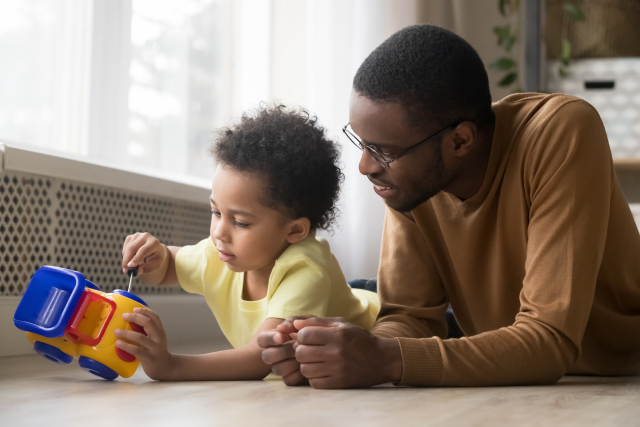
Be ready for emotions
Hanson said it’s OK to cry — both for you and your kiddo — during the massive milestone that is kindergarten.
“It could be the first time a child is spending this much time away from home (sometimes more waking hours at school than at home),” she said. “Having mixed emotions about it is OK.”
You may also notice changes in your child’s behavior at home. School requires a lot from kids — focusing attention, following directions, interacting with peers and a great deal of learning. Your child is working hard to stay engaged for many hours at a time. It’s completely normal for a kid to crash or “lose it” once she returns to the comforting normalcy of home.
“Kids try so hard to hold it together at school all day,” Hanson said. “Sometimes that means school gets their ‘best,’ and at home, they don’t have anything left to give.”
Big feelings and a lot of emotion aren’t just normal; they’re to be expected. When kids are experiencing a lot of emotions, and perhaps acting out in response, it can be helpful to know they’re not intending to give you a hard time — they’re having a hard time. Plan on providing some extra attention, a listening ear and big hugs to reassure and comfort your kid.
Trust the teacher
Teachers want to collaborate with all families, and they work hard to ensure open communication is a priority.
“Parents and caregivers are critical partners in our efforts to ensure all children are ready for the next step in their school journey,” Miller said. “Our team works tirelessly to meet each child where she or he is, and to help him or her grow as much as possible.”
Hanson added: “Always feel free to reach out to your child’s teacher. No question or concern is a silly question or concern.”
If a practice or protocol seems confusing or unclear to you or your student, your teacher wants to know how you feel — and can talk you through it. Teachers are very intentional with the classroom procedures they create and there’s usually a purpose behind their decisions, especially when it comes to navigating a classroom of 20 or more 5- and 6-year-olds.
The most important thing parents need to know before sending their children off to kindergarten, Hanson said, is this: “Your child’s kindergarten teacher will teach them, encourage them and care for them: They will love your child like their own.”
Laura Ramsborg is a literacy coach, writer and mother of three daughters. She lives and works in Bloomington.



